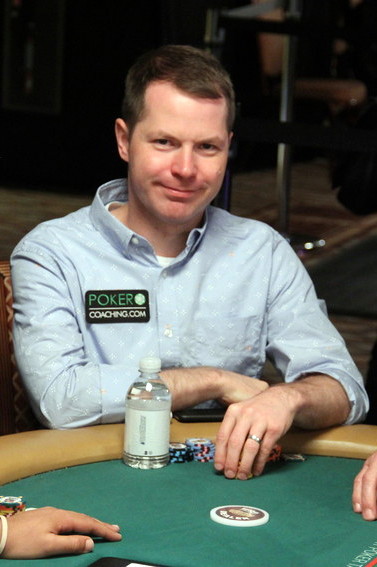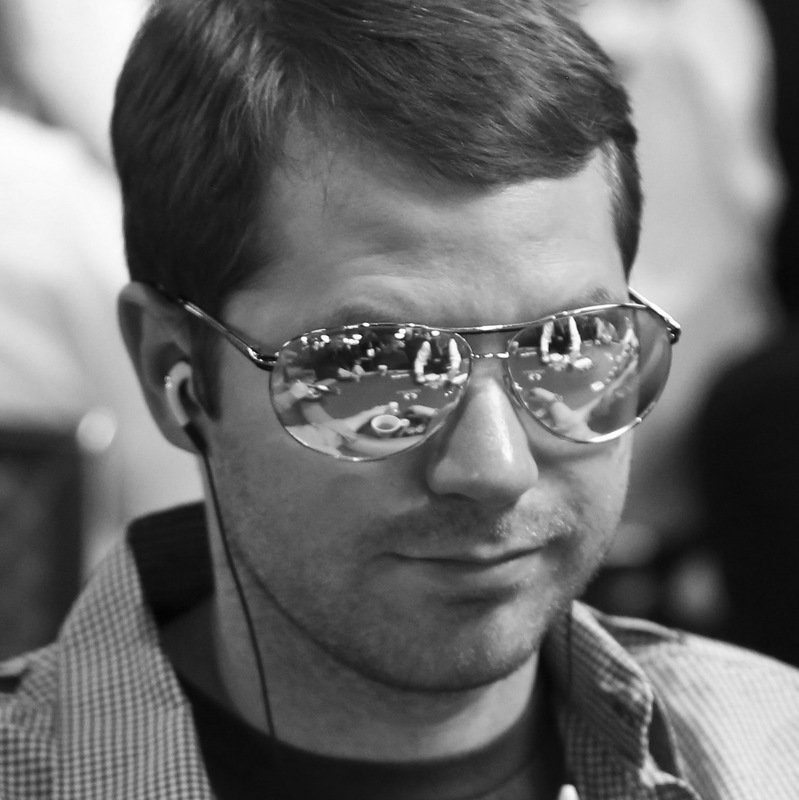






Common Poker Mistakesby Jonathan Little | Published: Jul 01, 2020 |
|
|
Card Player Magazine, available in print and online, covers poker strategy, poker news, online and casino poker, and poker legislation. Sign up today for a digital subscription to access more than 800 magazine issues and get 26 new issues per year!
 When I first started playing poker as an 18-year-old kid, I was terrible. I only wanted to put my hard-earned money in the pot when I knew I had the absolute nuts. I eventually learned that waiting for the nuts is actually a great way to go broke.
When I first started playing poker as an 18-year-old kid, I was terrible. I only wanted to put my hard-earned money in the pot when I knew I had the absolute nuts. I eventually learned that waiting for the nuts is actually a great way to go broke.
If you are not a winning poker player, you have glaring holes in your poker strategy, just as I did when I first started. Let’s discuss some common flaws amateur poker players exhibit, then outline steps you can take to ensure you are on the road to poker mastery.
Most poker players think they are much better at poker than they actually are. This is likely because most people who stick with poker for any extended period of time experience at least some level of success. Very few people keep playing if they lose the first 20 times they play. Those players quit and move on to something else. The people who experience immediate short-term success are the ones who keep playing indefinitely. This initial success leads most amateurs to be overconfident in their skills. Instead of working hard to improve at poker, they assume they must be great at the game. If you want to become an excellent poker player, realize that you have to spend your time at the table diligently paying attention, and your time away from the table studying all aspects of the game.
Most amateurs develop a default strategy based on what they are comfortable with, and then stick with it for their entire poker-playing careers. This usually leads them to bluff way too frequently, or way too infrequently. They tend to think in definitive statements, such as “I always call with top pair,” “I always hit my draws,” or “Michael always bluffs.” Thinking like this leads them to make huge blunders because in reality, calling with top pair is only sometimes correct, you will hit your draws as often as the odds dictate, and Michael only occasionally bluffs. Instead of thinking like this, the best players make the right play based on the exact situation they are in, not the situation they were in last time they played.
Another common mistake of amateur poker players is that they play in games that are much too large for their bankrolls. Most professional tournament players know to keep at least 100 buy-ins. This means if they play $500 buy-in tournaments, they keep at least $50,000 in their bankroll. On the other hand, many amateurs keep a relatively small amount of money devoted to poker. This often results in amateurs caring way too much about the money they risk. If you have a $2,500 “poker bankroll” and risk $500 of it, I completely understand how the pressure would be unbearable. If you instead risk $500 out of your $50,000 bankroll, you will be able to think clearly and make sound, unemotional decisions.
The sooner you stop thinking emotionally when playing poker, the better. It is well known that when poker players have things on their mind besides poker, such as an argument with their spouse, financial troubles at home, or anything else that demands a large amount of their attention, they tend to play worse. Those who take their opponents’ actions personally do worse than those who simply make the best possible play in each situation. If someone constantly re-raises you, instead of getting annoyed and trying to show him who is boss, implement an ideal strategy to take advantage of his aggression. Do not think that poker is a game about who can act the most macho.
Always ask yourself why you do the things that you do, especially if you are not getting the results you want. If you want to win money from poker but you lose in the long run, something needs to change. To be sure you are thinking about poker in a way that will lead to you winning over the long run, I just created a new series that will ensure you are thinking like a pro and playing well. Check it out at PokerCoaching.com/fundamentals. ♠
 Jonathan Little is a professional poker player and best-selling poker author with more than $7 million in live tournament earnings. If you want to learn how to play fundamentally sound poker and increase your win rate, check out PokerCoaching.com. Click here to try PokerCoaching.com for free.
Jonathan Little is a professional poker player and best-selling poker author with more than $7 million in live tournament earnings. If you want to learn how to play fundamentally sound poker and increase your win rate, check out PokerCoaching.com. Click here to try PokerCoaching.com for free.
Features
The Inside Straight
Strategies & Analysis